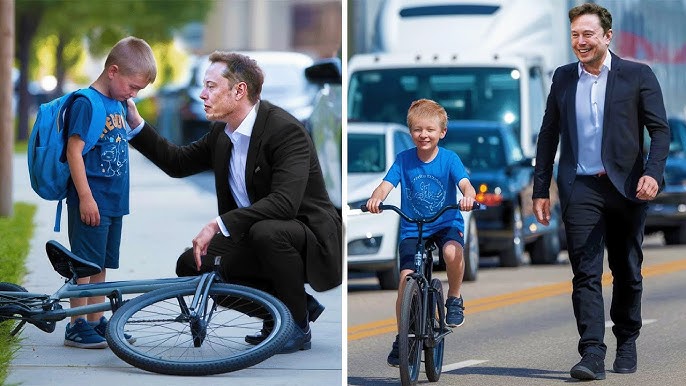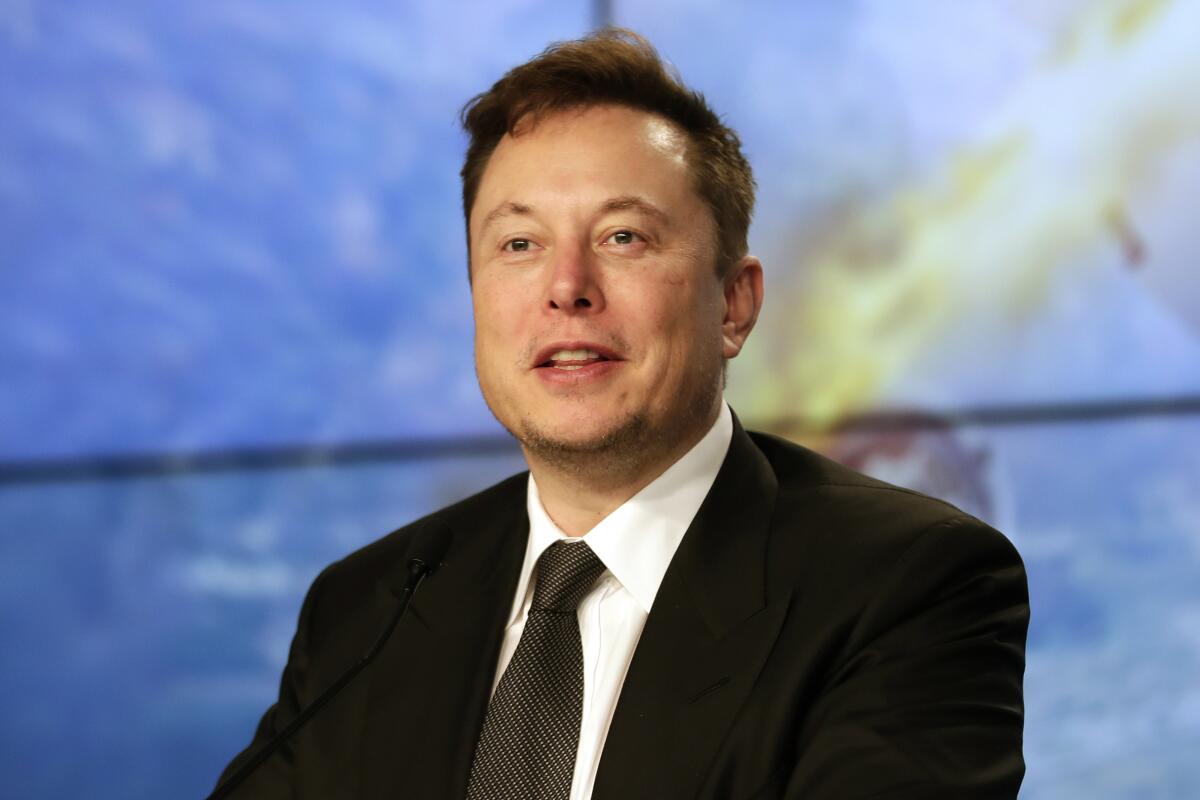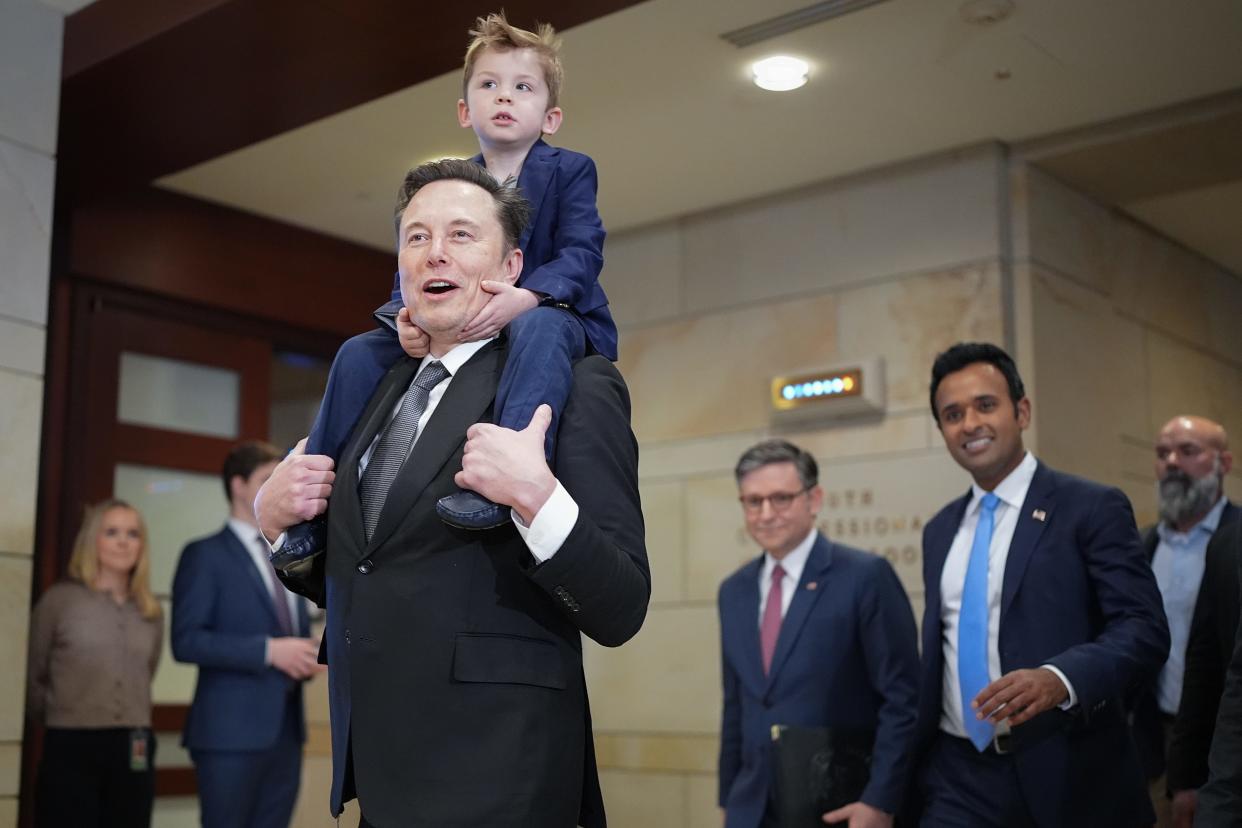Elon Musk Provides $700,000 to Help Underprivileged Students Access Education via Bicycles

Elon Musk Provides $700,000 to Help Underprivileged Students Access Education via Bicycles
Introduction: Elon Musk, the billionaire entrepreneur behind Tesla, SpaceX, and Neuralink, has once again demonstrated his commitment to social causes with a generous donation of $700,000 aimed at helping underprivileged students access education. Musk’s contribution will provide bicycles to students in underserved communities, offering them the means to overcome one of the most significant barriers to education: transportation. In many parts of the world, students face long and difficult commutes to schools, particularly in low-income areas where public transportation may not be available or affordable. Musk’s initiative seeks to address this issue by providing bicycles that will enable students to reach school more easily and safely, empowering them to pursue their education without the burden of distance or unreliable transportation. In this article, we explore the significance of Musk’s donation, the impact it will have on students, and how this effort aligns with his broader vision of improving education and supporting the next generation of innovators.
The Importance of Access to Education: Access to quality education is a critical factor in breaking the cycle of poverty and creating opportunities for future success. However, for many students in underprivileged communities, attending school can be a challenge due to a lack of reliable transportation. Long distances, unsafe walking routes, and the inability to afford public transportation all contribute to students missing school or dropping out altogether.
Education is the key to opening doors for individuals and communities, but without access to the tools necessary to attend school consistently, students may fall behind or be unable to complete their studies. Musk’s initiative recognizes that transportation is a key component of educational access, and by providing bicycles, he is helping to remove one of the barriers that prevent students from reaching their full potential.
Bicycles are a simple yet effective solution, offering students the freedom to travel long distances more quickly and safely, without relying on public transportation or walking. This practical approach not only makes education more accessible but also promotes physical activity, independence, and a sense of empowerment for students who might otherwise face significant challenges in reaching their schools.
Musk’s $700,000 Donation: A Game-Changer for Education Elon Musk’s $700,000 donation to provide bicycles for underprivileged students is a significant contribution to education and a thoughtful way to tackle transportation issues. The donation will go toward purchasing bicycles, helmets, and other necessary accessories, which will be distributed to students in areas where transportation is a significant challenge. By addressing the problem of access head-on, Musk’s donation offers students a reliable means of transportation, giving them the ability to attend school regularly and on time.
The bikes are expected to make a major impact on students’ daily lives, particularly in rural or underserved urban areas where public transport options are limited. For many students, having access to a bicycle means being able to attend school without worrying about missing classes due to transportation difficulties. This increased attendance can lead to improved academic performance, as students are more likely to remain engaged and consistent in their studies.
In addition to providing transportation, the bicycles also have the potential to improve students’ physical health. Cycling is a great form of exercise that promotes cardiovascular health and builds endurance, and it encourages an active lifestyle. The health benefits of cycling, combined with the educational advantages, create a powerful tool for improving students’ overall well-being and future opportunities.
Addressing Inequality Through Education: Musk’s initiative also highlights the broader issue of inequality in education. In many parts of the world, students in low-income communities face significant obstacles when it comes to accessing education. These challenges often extend beyond just transportation, affecting access to textbooks, technology, and other essential learning tools. However, Musk’s investment in bicycles serves as a reminder that small, thoughtful solutions can have a meaningful impact on addressing inequality.
By providing bicycles to students, Musk is not only making education more accessible but is also taking a step toward creating a more equitable society. Ensuring that every child has the opportunity to attend school regularly is a crucial step in reducing educational disparities and promoting social mobility. This initiative aligns with Musk’s broader philosophy of using his resources to make a difference in people’s lives, particularly in areas where his contribution can have a direct and lasting impact.
The Long-Term Impact on Students and Communities: While the immediate benefit of Musk’s donation is clear, the long-term impact could be even more profound. For students who previously faced difficulties getting to school, the gift of a bicycle can transform their educational experience. The ability to attend school regularly will improve their chances of academic success, increasing their likelihood of completing their studies and pursuing higher education or career opportunities.
Beyond the individual benefits, Musk’s initiative can have a ripple effect on entire communities. Education is a powerful tool for uplifting communities, and when students are given the opportunity to succeed, they can become agents of change in their families and neighborhoods. By investing in the education of young people, Musk is helping to foster a more educated, skilled, and empowered workforce that can contribute to the future development of society.
In addition, Musk’s donation has the potential to inspire others in the business and philanthropic sectors to invest in similar initiatives. If more individuals and companies recognize the value of addressing transportation and other barriers to education, we could see a broader movement toward improving access to learning for students around the world. Musk’s actions serve as a call to action for others to use their resources to solve practical problems that have the potential to create lasting change.
Musk’s Broader Commitment to Education and Social Impact: Elon Musk has long been an advocate for education, particularly in the fields of science, technology, engineering, and mathematics (STEM). Through his initiatives and donations, Musk has supported a range of educational programs that aim to nurture the next generation of innovators and problem-solvers. His support for education has included funding scholarships, supporting science fairs, and contributing to initiatives that encourage young people to pursue careers in technology and engineering.
The $700,000 donation to provide bicycles is just one example of Musk’s broader commitment to improving education and supporting communities in need. By focusing on practical solutions to educational access, Musk is showing that philanthropy can be both impactful and tangible. His contributions are helping to remove barriers that prevent students from succeeding, ensuring that more young people have the opportunity to reach their full potential.
Conclusion: Elon Musk’s $700,000 donation to provide bicycles for underprivileged students represents a powerful and impactful solution to a common barrier to education. By helping students access school more easily and regularly, Musk is making a meaningful contribution to their academic success and future opportunities. This initiative not only addresses transportation challenges but also promotes physical health, independence, and social mobility. Musk’s generosity underscores the importance of supporting education as a means of creating a more equitable and empowered society. Through this simple yet transformative effort, Musk is helping to ensure that all students, regardless of their background, have the tools they need to succeed in school and beyond.








